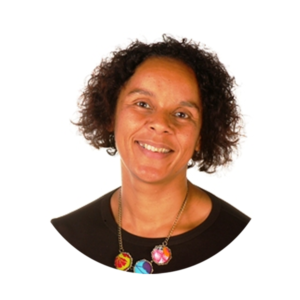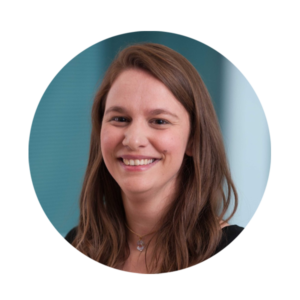This session we are discussing complex PTSD, with the focus on Dr. Rachel Hiller’s JCPP open access paper first published 20 March 2020.
Slides from the session
To get the most from the session we suggest reading/watching the following resources;
- Mental Elf blog, a 2 min read
- Our Research Digest of the paper, a 2 min read
- Dr. Rachel Hiller’s 8 min video abstract of the paper
- The full open access paper doi.org/10.1111/jcpp.13232
Additional resources
Scotland’s Independent Care Review ‘The Promise’
Background
Young people in out‐of‐home care are substantially more likely to meet criteria for PTSD than their peers, while their early maltreatment exposure may also place them at greater risk of developing the newly proposed complex PTSD. Yet, there remains limited empirical evidence for the mechanisms that might drive either PTSD or complex features in this group, and ongoing debate about the suitability of existing cognitive behavioural models and their related NICE‐recommended treatments. In a prospective study of young people in out‐of‐home care, we sought to identify demographic and cognitive processes that may contribute to the maintenance of both PTSD symptom and complex features.
About the session
A panel, comprising Dr. Rachel Hiller, Professor Helen Minnis, and a young person, will discuss the research and its implications. This discussion will be facilitated by Andre Tomlin (@Mental_Elf) who will also be posing the questions you post live online.
All you need to do to sign up to this free event is click here or on the Book Now button at the top of the screen and complete the form that follows. You’ll then receive an email confirmation and a link to the webinar, plus we’ll send you a calendar reminder nearer the time. ACAMH Members attending will be eligible for a CPD certificate.
About #CAMHScampfire
ACAMH’s vision is to be ‘Sharing best evidence, improving practice’, to this end in December 2020 we launched ‘CAMHS around the Campfire’, a free monthly virtual journal club, run in conjunction with André Tomlin. We use #CAMHScampfire on Twitter to amplify the discussion.
Each 1-hour meeting features a new piece of research, which we discuss in an informal journal club session. The focus is on critical appraisal of the research and implications for practice. Primarily targeted at CAMHS practitioners, and researchers, ‘CAMHS around the Campfire’ will be publicly accessible, free to attend, and relevant to a wider audience.
About the panel (more to be added when confirmed)

Dr. Rachel Hiller is a lecturer in child and adolescent clinical psychology in the Department of Psychology, University of Bath. Her research examines cognitive-behavioural processes that link the experience of child trauma or maltreatment to psychological outcomes, with a focus on posttraumatic stress disorder (PTSD). It is focused on high-risk groups, including those exposed to multiple traumas or maltreatment and where trauma is experienced in the context of ongoing adversity. Rachel is particularly interested in exploring ways to improve access to evidence-based trauma-focussed psychological interventions for vulnerable groups of youth and in how different services (e.g., social-care, mental health, education) understand and respond to the needs of trauma-exposed young people.

Helen Minnis is a Professor of Child and Adolescent Psychiatry at the University of Glasgow. Professor Minnis spent time working as an Orphanage Doctor in Guatemala in the early 1990s prior to training in Psychiatry, and this stimulated an interest in the effects of early maltreatment on children’s development. Her research focus has been on Attachment Disorder: clinical aspects, assessment tools and behavioural genetics. She is now conducting intervention research for maltreated children including a randomised controlled trial of an infant mental health service for young children in foster care.

André Tomlin is an Information Scientist with 20 years experience working in evidence-based healthcare. He’s worked in the NHS, for Oxford University and since 2002 as Managing Director of Minervation Ltd, a consultancy company who do clever digital stuff for charities, universities and the public sector. Most recently André has been the driving force behind the Mental Elf and the National Elf Service. *The Mental Elf is a blogging platform that presents expert summaries of the latest reliable research and disseminates this evidence across social media. They have published thousands of blogs over the last 10 years, written by experts and discussed by patients, practitioners and researchers. This innovative digital platform helps professionals keep up to date with simple, clear and engaging summaries of evidence-based research. André is a Trustee at the Centre for Mental Health and an Honorary Research Fellow at University College London Division of Psychiatry. He lives in Bristol, surrounded by dogs, elflings and lots of woodland! Bio via The Mental Elf

I am an information scientist with an interest in making knowledge from systematic research more accessible to people who need it. This means you. I’ve been attempting this in the area of Evidence-Based Health Care since 1995. So far the results have been mixed. For some reason we expected busy clinicians to search databases and appraise papers instead of seeing patients. We also expected publishers to make the research freely available to the people who paid for it. Ha! Hence The National Elf service.

Dr. Stephanie Lewis
Dr. Stephanie Lewis is a Clinical Lecturer in Child and Adolescent Psychiatry at the Institute of Psychiatry, Psychology and Neuroscience (IoPPN), King’s College London. She studied medicine at Imperial College London, and since graduating has undertaken integrated clinical and academic training, including psychiatry training at South London and Maudsley NHS Foundation Trust and the IoPPN. She is currently undertaking an MRC Clinical Research Training Fellowship, and continues to work as a psychiatrist in child and adolescent mental health services

